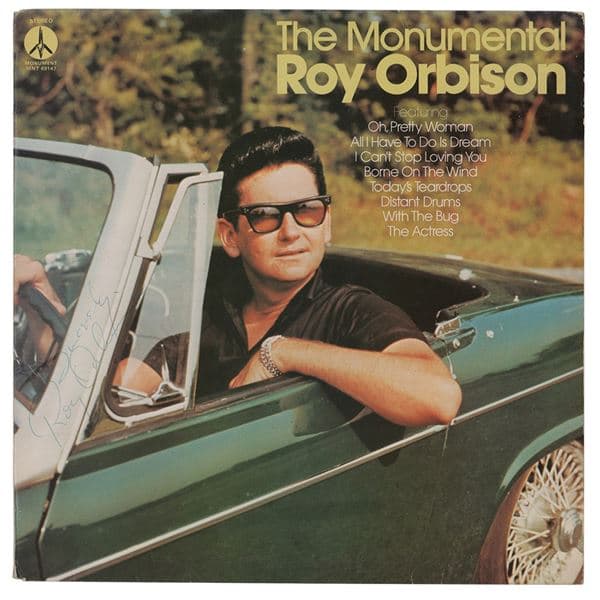
“Borne on the Wind” – Roy Orbison’s Ethereal Tale of Heartache
Released in 1964, “Borne on the Wind” is one of Roy Orbison’s lesser-known but equally enchanting ballads, offering a glimpse into his unparalleled ability to blend poetic storytelling with haunting melodies. At just under two minutes, the song is a brief but powerful piece, evoking themes of loss, longing, and emotional drift. While it didn’t achieve the commercial success of Orbison’s major hits like “Oh, Pretty Woman” or “Crying”, the song remains a fan favorite for its dreamy atmosphere and delicate arrangement.
The lyrics of “Borne on the Wind” capture the fleeting nature of love, comparing it to something carried away by the wind, elusive and impossible to hold onto. Orbison’s signature falsetto floats over the verses, lending the song a weightless quality. The melody is soft, almost lullaby-like, and accompanied by a sparse arrangement of light percussion, gentle strings, and guitar. The mood it creates is ethereal, as though the listener is suspended in time, drifting through a landscape of emotions.
While Orbison was known for his operatic vocal range and dramatic delivery, “Borne on the Wind” showcases his ability to convey subtle vulnerability. His voice on this track is restrained yet profoundly expressive, capturing the essence of someone reflecting on love that has slipped away. It’s a perfect example of Orbison’s gift for balancing tenderness with melancholy, a recurring theme throughout his career.
The song achieved moderate success in the UK, reaching No. 15 on the charts, but it struggled to make a significant impact in the United States, where it peaked at No. 70 on the Billboard Hot 100. Still, the song’s introspective nature resonated with those who appreciated Orbison’s more emotional and contemplative material. It remains a hidden gem in his discography, treasured by fans who admire his ability to capture complex emotions in simple yet profound lyrics.
“Borne on the Wind” may not have reached the same heights as Orbison’s more commercial hits, but it exemplifies the artistry that made him a legend. Its delicate composition and heartfelt lyrics reveal a man who understood the impermanence of love, capturing that bittersweet reality in a way only Orbison could. Even today, the song stands as a testament to the singer’s unmatched ability to evoke both beauty and sadness, floating gently through the hearts of those lucky enough to discover it.